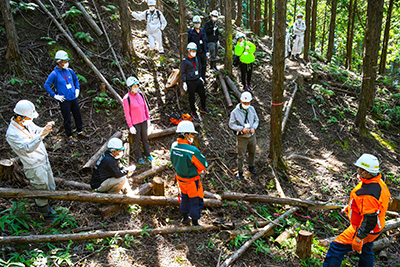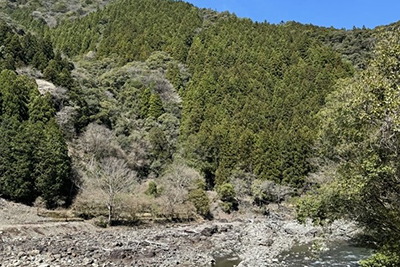Biodiversity: External Collaboration
External Collaboration
Status of Participation in the Round Table on Responsible Soy Association (RTRS)
Agrex do Brasil, a subsidiary of MC, was the first company to obtain Round Table on Responsible Soy Association (RTRS) certification for responsible soy production at its farmland in Maranhão, Brazil. Through RTRS certification, Agrex do Brasil aims to strengthen internal processes, enhance soil management and protection, improve water stewardship, motivate employees, and build stronger relationships with local communities.
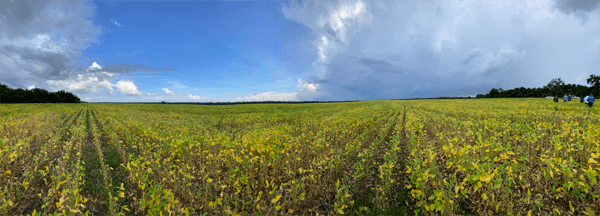
Participation in CDP
MC actively discloses ESG-related information to stakeholders worldwide. Since FY2014, MC has responded to CDP Forests, a survey assessing forest-related risk management within corporate supply chains. CDP, a UK-based international environmental NGO, maintains the world’s largest database of corporate environmental disclosures and works with global institutional investors to promote transparency on climate and natural resource stewardship.
Cermaq Initiatives
Cermaq, an MC subsidiary, recognizes biodiversity protection as a core element of its license to operate across all countries where it has operations. Cermaq collaborates with local stakeholders to safeguard biodiversity, including wild salmonids populations, through measures such as monitoring benthic impacts and tracking bird and marine mammal mortalities. These efforts comply with regulations in Norway, Chile, and Canada, as well as additional requirements under certification programs such as ASC and BAP.
Cermaq also engages in beach-cleaning activities across its operating regions, regardless of the source of the debris. In its Feed Supplier Code of Conduct, Cermaq further stipulates that fish meal and fish oil must not originate from IUU (illegal, unreported, or unregulated) fisheries, and that soy used in feed must be sourced from deforestation-free supply chains.
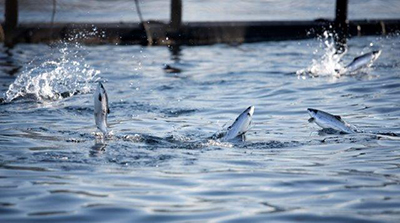
- Please refer to theCustomer Responsibility Sectionfor details on Cermaq’s other initiatives.
- Please refer to the ESG Data at link below for data on related data.
- Sustainability Report / ESG Data
Examples of Collaboration with Government Bodies
Forest Conservation Project: "Mitsubishi Corporation Thousand Year Forest"
MC is engaged in a forest conservation project in Aki City, Kochi Prefecture, the birthplace of Yataro Iwasaki, founder of the original Mitsubishi company. In partnership with Kochi Prefecture, Aki City, and the Eastern Kochi Forestry Association, MC has been promoting conservation efforts since 2009. This initiative, known as the Mitsubishi Corporation Thousand Year Forest (also called Yataro’s Forest), is MC's first forest conservation project in Japan. The forest covers 263 hectares, 143 of which are owned by MC. The project focuses on preserving public-interest forest functions such as headwater conservation, and serves as a site for MC employee volunteering and environmental education.
In March 2020, MC entered into an agreement with the Shikoku Forestry Bureau, Aki City, and the Eastern Kochi Forestry Association to apply biodiversity-focused management practices in the Becchaku area of Yataro's Forest. These initiatives support the Bureau's "green corridor" policy*1, which aims to enhance biodiversity by connecting protected forest areas and enabling the movement of plants and animals.
As a result of these conservation efforts, a section of Yataro's Forest*2 was certified as a Nationally Certified Sustainably Managed Natural Site*3 by the Ministry of the Environment in March 2024.
- *1Under the protective forest system, national forests in Shikoku safeguard important flora, fauna, and forest area. Establishing “green corridors” between these forests is expected to enhance biodiversity by facilitating species movement.
- *2Of the total 263-hectare forest area, 212 hectares have been certified as a Sustainably Managed Natural Site. This certified zone connects to a "green corridor” in the Shikoku Mountains District.
- *3Nationally Certified Sustainably Managed Natural Sites are designated areas where biodiversity conservation is advanced through private-sector initiatives.
Examples of Collaboration with International Organizations and NGOs
Natural Climate Solutions
MC began supporting Natural Climate Solutions (NCS) in 2022 as part of its philanthropic activities. NCS encompasses various approaches, but MC focuses particularly on preventing rangeland degradation to preserve the carbon absorbed by vegetation and to prevent CO2 stored in soil and plants from being released into the atmosphere.
In the region surrounding Durban, South Africa, rapid population growth has increased grazing pressure. As a result, rangelands, areas dominated by grass and shrubs, have begun to shrink. This raises concerns about reduced carbon absorption and the potential release of stored CO2 from soil.
To address these challenges, MC is collaborating with Conservation International, an environmental NGO, to conserve rangelands in partnership with local communities. The project also aims to improve the quality of livestock farming, enhance water resource management, and support the overall well-being of local residents.
Through engagement in various NCS projects, MC seeks to contribute to climate change mitigation, biodiversity conservation, and community development.
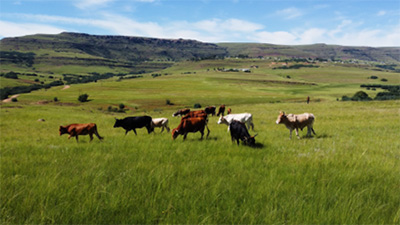
Global Coral Reef Conservation Project (Okinawa, Australia)
Since its launch in 2005, the Global Coral Reef Conservation Project has been conducted worldwide, combining scientific research with community-based activities through collaborations among academic institutions, industry partners, and civil society organizations. The project has continued for nearly two decades, promoting coral reef conservation and ecosystem resilience.
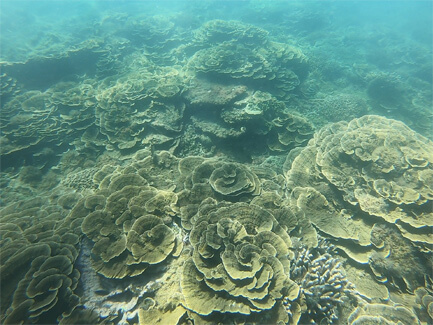
Foundation Activities
Through the Mitsubishi Corporation Foundation for the Americas (MCFA) and the Mitsubishi Corporation Foundation for EMEA Charitable Incorporated Organisation (MCF for EMEA), MC supports initiatives that work towards realizing an inclusive society, empowering the next generation, and conserving the environment. These foundations work with a wide range of partners, including Farm Africa, which promotes sustainable coffee farming in Ethiopia’s Bale-Eco Region, and the Yellowstone to Yukon Conservation Initiative, which works to protect caribou in Canada.
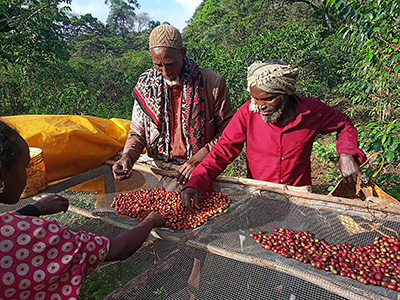
Examples of Collaboration with Other Companies
In April 2015, MC joined the Japan Business Initiative for Biodiversity (JBIB)*, a coalition of companies committed to undertaking joint research aimed at protecting biodiversity. JBIB member companies pledge to respect biodiversity in daily operations and to pursue activities that reduce negative environmental impacts. Through ongoing dialogue with JBIB members and related organizations, MC continues to explore new approaches for strengthening its biodiversity initiatives.
- *A group of Japanese companies engaged in biodiversity protection activities
